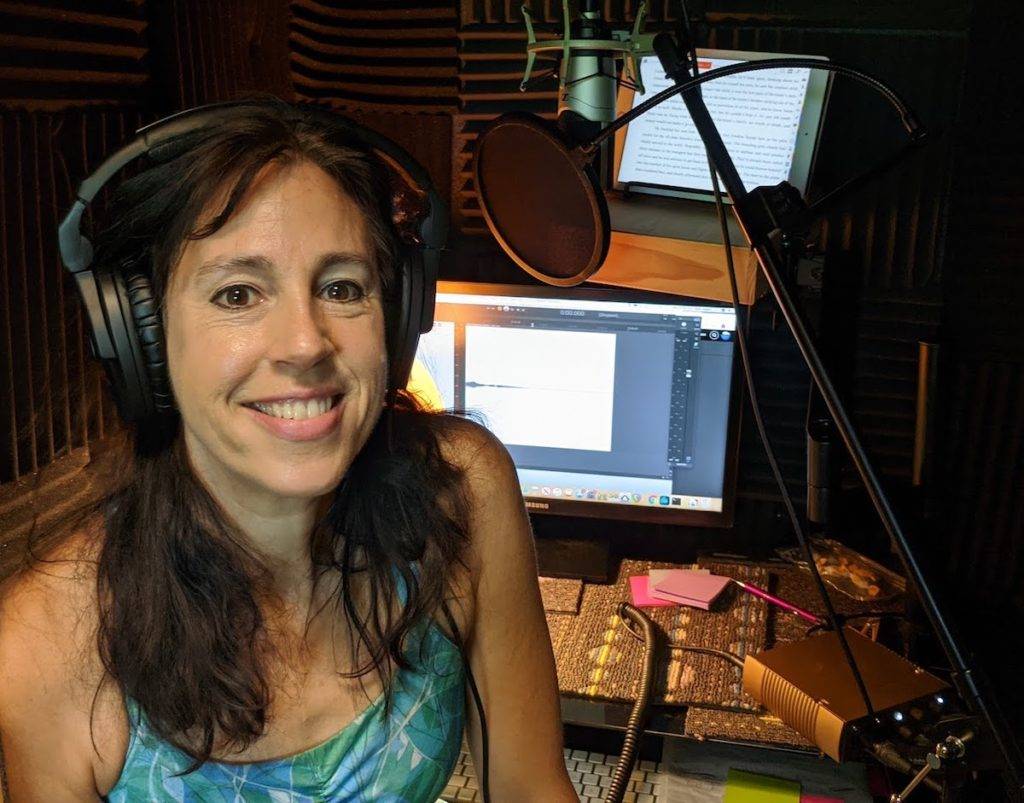What’s the best audiobook you’ve ever listened to? Did you sit in the driveway to get to the end of the chapter? Or maybe it made you think about something more deeply, or treat yourself and your world with more compassion. I’ve certainly had these experiences, and even though the genres, authors, and narrators varied, the things that made it amazing did not.
Think back to that favorite Audiobook: maybe it’s Davina Porter when you binged the “Outlander” series or every-award-winning Bahni Turpin with “The Immortal Life of Henrietta Lacks”. So what makes their performances so outstanding and impactful? What’s the secret to being a good audiobook narrator? It’s not enough to just read a book out loud: they all tell a story, build a world, and bring characters to life. When push comes to shove, there isn’t one thing that defines a good Audiobook, instead the best narrators bring heart and soul to it — as with all art.

Narrating isn’t just acting
It takes more than good acting to make an excellent narrator, and many terrific actors aren’t ready for the long hours of just you, the book, and the booth. Add in that we read audiobooks now with a full set of sometimes dozens of characters and you have a pretty tricky gig. While I wouldn’t be able to say there’s one specific set of requirements to create a fantastic work worth listening to, here are the skills that I think set amazing audiobook narrators apart from the pack.
Vocal strategies
One of the reasons that I got into narrating in the first place is that I have played a lot of men, animals, and other-worldly beings on stage. Many of the most successful narrators have experience playing with gender or as character actors and bring all that to the table. Some also have the ability to vocalize in different registers and adjust speech patterns around the characters when it comes to things like cadence and accents. I also warm up daily. When your work tools are your voice, it needs to stay sharp.
Research skills
Ever listen to a book and cringe when a word is mispronounced? I’ve done works with dozens of languages, advanced science vocabulary, and historical names. It’s hard to keep track of all of it! And it may come as a surprise, but we’re mostly in charge of our own research. That means sourcing out the correct pronunciations often takes a lot of my prep time. I always start by doing a read through and marking all the things I need to look up as well as planning out the character voices. This all goes into planning a book.
An engaging voice
I guess this is a bit ephemeral as we could all disagree on what makes a voice more engaging. To me, it means you hang on to the lilt of their speech, following each sentence without even noticing. The audience should both be absorbing every word and anticipating the next one. Just as I do for stage or screen, I plan ahead the beats to emphasize text, the places to get louder and softer, and the emotional words that need extra attention. Personally, I try to be forgotten, like I am a guide into a dream where the listener ends up being immersed in the story itself, and it all feels imaginarily real.
Authenticity and realness
When I play a role on stage, a part of me becomes that person. Otherwise, you’re only ever touching the surface of their experience. As strange as this sounds, this is almost more important in the voice over world. I have to convince my audience that I’m multiple people and sometimes an omniscient narrator. Some of it comes down to feeling each character in each moment. We as the readers and listeners might see the big picture, but every person in the scene has a different authentic reaction. Playing each one with integrity sets the best storytellers apart.
Being an audiobook narrator takes lots of work, plenty of technique, and heapings of love. It’s not something I would recommend as a backup career – in fact myself and many of my colleagues who narrate find it to require at least as much work as theatre. Remember in the booth, I am usually my own director in addition to being every character in the work. I get paid per finished hour, but that doesn’t take into account all the time I spend prepping and practicing (not to mention messing up). They being said, narrating the closing credits does feel like bows on closing night, even though I am the only audience member. And when a reader feels like they lost themselves in the story while they were listening, then I know I did a good job, and all the hard work and struggle is worth it.